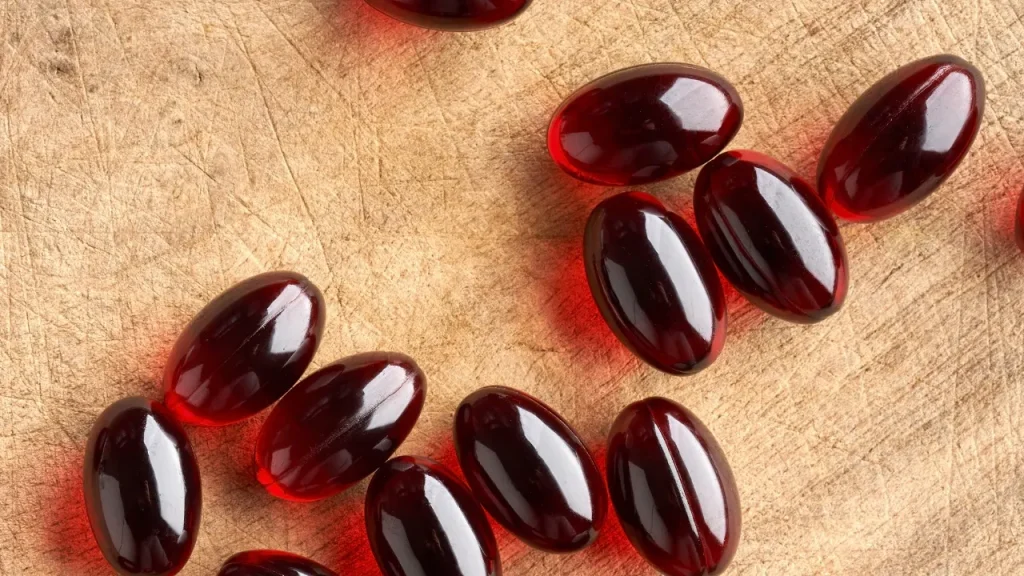Help Put a Stop to Your Slump: Try These Top Supplements for Seasonal Depression
Seasonal depression, commonly referred to as Seasonal Affective Disorder (SAD), is a pervasive and challenging condition that often emerges as the days grow shorter and colder, casting a shadow over the lives of many individuals. This disorder is characterized by recurring episodes of depression that typically strike during the fall and winter months when daylight becomes scarce.
As the vibrant hues of autumn give way to the gray and somber winter landscape, the emotional well-being of those susceptible to SAD can take a noticeable dip. The diminishing sunlight during these seasons can profoundly impact mood and overall mental health. If you are grappling with persistent feelings of sadness, fatigue, and a disheartening lack of interest in activities that once brought you joy, especially during these times, you may be experiencing SAD.
This introductory section serves as the gateway to our comprehensive guide, where we will explore the multi-faceted nature of this condition. Over the subsequent sections, we will delve into the intricate causes of SAD, recognizing the distinctive signs and symptoms that set it apart, assessing the prognosis, and exploring various treatment options for managing seasonal depression. Additionally, we will investigate the potential of nutritional supplements as a complementary approach to traditional treatments.
By the conclusion of this article, you will possess not only a deeper understanding of the intricate nature of seasonal depression but also a range of strategies to combat its effects effectively. There is hope and a path toward brighter days in the face of SAD.
You May Also Like:
Best Energy Supplements For Chronic Fatigue
Support Your Heart Health: Comparing 2 Top Supplements
Help Put a Stop to Your Slump: Try These Top Supplements for Seasonal Depression is an original (OptimalHealthNews) article.
Supplements for seasonal depression:
Seasonal affective disorder causes
Seasonal depression, scientifically termed Seasonal Affective Disorder (SAD), represents a distinctive subtype of major depressive disorder characterized by a recurrent seasonal pattern. This condition predominantly strikes during the fall and winter, when daylight hours noticeably dwindle, and exposure to natural sunlight becomes increasingly limited. Individuals grappling with SAD often find themselves mired in a web of debilitating symptoms that can profoundly affect their daily lives.
The precise causes of Seasonal Affective Disorder remain the subject of ongoing research. However, several contributing factors have been identified:
1. Biological Clock Disruption: Reduced exposure to sunlight can disrupt the body’s intricate internal clock, leading to imbalances in the production of crucial mood-regulating hormones such as melatonin and serotonin. This disruption can give rise to mood disturbances and irregular sleep patterns, hallmarks of SAD.
2. Melatonin Imbalance: The diminishing natural light levels during the fall and winter months can trigger an overproduction of melatonin, the hormone responsible for regulating sleep-wake cycles. As a result, individuals with SAD may experience excessive drowsiness and lethargy, further exacerbating their symptoms.
3. Serotonin Levels: Sunlight plays a pivotal role in boosting serotonin levels in the brain, a neurotransmitter closely linked to feelings of well-being and happiness. The reduced sunlight exposure during SAD’s peak seasons can lead to diminished serotonin production, potentially contributing to the depressive symptoms associated with the disorder.
4. Genetic Predisposition: Growing evidence suggests that genetics may play a role in an individual’s susceptibility to SAD. Family history often reveals a higher likelihood of developing the disorder, hinting at a genetic component that merits further exploration.
In understanding these potential causes of SAD, we move closer to unraveling the complex tapestry of this condition. While the precise interplay of these factors remains a subject of ongoing study, recognizing these underlying mechanisms is a crucial step toward developing more effective treatments and interventions for those affected by Seasonal Affective Disorder.

Supplements for seasonal depression:
Symptoms
Recognizing the symptoms of Seasonal Affective Disorder (SAD) is a pivotal step in facilitating early intervention and effective management. SAD manifests with a cluster of characteristic symptoms, including:
1. Persistent Sadness: Individuals with SAD often grapple with persistent feelings of sadness and hopelessness. Frequent mood swings, marked by shifts from sadness to irritability, are common features of this condition.
2. Low Energy: One of the hallmark signs of SAD is a noticeable and unrelenting lack of energy. People affected by SAD frequently experience increased fatigue, struggling to summon the vitality required for daily tasks.
3. Sleep Disturbances: Sleep patterns are profoundly disrupted in SAD patients. They may have difficulty falling asleep, staying asleep, or, conversely, experiencing excessive oversleeping (hypersomnia). These disturbances can further exacerbate feelings of fatigue and lethargy.
4. Weight Changes: Changes in appetite and weight are often discernible symptoms of SAD. Many individuals with SAD experience an increase in appetite, particularly for carbohydrates and comfort foods, leading to weight gain. This alteration in eating habits can contribute to the physical and emotional burden of the disorder.
5. Social Withdrawal: SAD can cause individuals to withdraw from social interactions, avoiding gatherings and isolating themselves from friends and loved ones. This social detachment is often accompanied by a marked decline in interest or pleasure derived from activities that were once sources of joy.
6. Difficulty Concentrating: Cognitive function may be impaired in those with SAD patients. Individuals frequently grapple with difficulty concentrating, making decisions, or completing tasks. The mental fog and diminished focus can further hinder their daily lives.
These common symptoms collectively paint a vivid picture of the challenges faced by individuals living with SAD. Recognizing these telltale signs is the first step towards offering support, seeking professional help, and implementing strategies to mitigate the impact of Seasonal Affective Disorder on one’s well-being.
Supplements for seasonal depression:
Prognosis
Understanding the prognosis of Seasonal Affective Disorder (SAD) is essential for those coping with this condition. SAD’s outlook varies widely among individuals. Some may experience mild symptoms that naturally improve as seasons change, while others may require more intensive treatment.
For individuals with mild SAD symptoms, lifestyle adjustments, increased exposure to natural light, and self-care strategies can often suffice to alleviate their condition. It’s crucial to note that even mild SAD can impact well-being, so seeking support and intervention is wise.
Conversely, severe SAD symptoms may necessitate a combination of light therapy, medication, and psychotherapy therapies. Seeking professional help is vital in such cases, as untreated SAD can worsen, potentially leading to severe depression and even thoughts of suicide.
Seasonal depression casts a shadow over various aspects of life, extending beyond emotions:
- Work: The pervasive lethargy and sadness associated with SAD can reduce productivity and increase absenteeism, making work challenging.
- Relationships: SAD often strains relationships due to social withdrawal and waning interest in activities, leading to isolation.
- Physical Health: Sleep disruptions and changes in eating habits can affect physical health, resulting in weight gain and related issues.
SAD’s profound impact underscores the importance of prompt recognition and intervention. Seeking support from healthcare professionals and implementing strategies to mitigate its effects can help individuals regain control over their lives and overcome seasonal depression’s grip.

Supplements for seasonal depression:
Treatment
The good news for individuals grappling with Seasonal Affective Disorder (SAD) is the availability of several effective treatment avenues:
1. Light Therapy: Also referred to as phototherapy, light therapy entails daily exposure to a specialized bright light source that replicates natural sunlight. This treatment is especially valuable for SAD as it helps regulate disrupted circadian rhythms and elevates mood. By receiving this light exposure, typically in the morning, individuals can effectively alleviate the symptoms of SAD and enhance their overall well-being.
2. Medications: In certain instances, healthcare providers may prescribe antidepressant medications to mitigate the symptoms of SAD. Selective serotonin reuptake inhibitors (SSRIs) are a common choice, as they work to rebalance neurotransmitters in the brain. Such medications are particularly beneficial when symptoms are severe or other treatments are insufficient.
3. Psychotherapy: Talk therapy, notably cognitive-behavioral therapy (CBT), plays a pivotal role in managing SAD. CBT equips individuals with invaluable coping strategies to address the disorder’s emotional and behavioral facets. This therapeutic approach empowers individuals to recognize and modify negative thought patterns and behaviors, enabling them to navigate the challenges presented by SAD more effectively.
4. Lifestyle Changes: Simple yet potent lifestyle modifications can significantly aid individuals dealing with SAD. These adjustments encompass maintaining a consistent sleep schedule to foster healthy circadian rhythms, engaging in regular physical activity to uplift mood and reduce stress, and adopting stress management techniques to ease the emotional burden associated with SAD.
The availability of these conventional treatments offers hope and relief to those confronting SAD. Tailored treatment plans, which take into account symptom severity and individual preferences, are paramount. Collaborating closely with a healthcare provider ensures the most effective management of Seasonal Affective Disorder.
Supplements for seasonal depression:
Kori Krill Oil
Nutritional supplements, while not a primary treatment for seasonal depression (SAD), can provide supplementary benefits when integrated with conventional therapies. One supplement that has garnered attention in this context is Kori Krill Oil Stress & Body Omega-3. Derived from Antarctic krill, Kori Krill Oil contains essential omega-3 fatty acids, primarily EPA (eicosapentaenoic acid) and DHA (docosahexaenoic acid). Omega-3 fatty acids are renowned for their potential to support brain health and reduce inflammation, factors closely linked to depression. Krill Oil Stress & Body Omega-3 has the power of krill but also partners it with Ashwagandha, which has been clinically studied to support mood as well.
The stress-relief potential of Kori Krill Oil Omega-3 presents an intriguing prospect for complementing conventional treatments for seasonal depression. While ongoing research delves into the specific benefits of omega-3s concerning SAD, existing studies have demonstrated promise in mood improvement and depressive symptom alleviation.
It is vital to emphasize that nutritional supplements, including Kori Krill Oil Stress & Body Omega-3, should not replace conventional treatment approaches for SAD. Rather, they are intended to augment the overall therapeutic strategy. Before incorporating any supplement into your regimen, it is advisable to consult with a healthcare provider to ensure it aligns with your unique needs and complements your existing treatment plan.
By considering the potential of nutritional supplements alongside conventional therapies, individuals with SAD can explore a comprehensive approach to managing their condition, hoping to achieve improved emotional well-being and overall quality of life.

Supplements for seasonal depression:
Final thoughts
Seasonal Affective Disorder (SAD) is a challenging condition that warrants a multi-faceted approach to address its impact. While nutritional supplements like Kori Krill Oil Stress & Body Omega-3 offer potential benefits for SAD, they should never replace conventional treatments. Instead, they can be harmoniously integrated into a holistic strategy to enhance overall well-being.
Consulting with a healthcare provider is imperative before incorporating any supplement into your routine. Their expertise ensures that the supplement aligns with your unique needs and complements your treatment plan. This collaborative approach maximizes potential benefits while guarding against interactions or adverse effects.
Recognizing the multi-dimensional nature of SAD, the combination of evidence-based therapies and carefully selected supplements offers a comprehensive approach to managing the condition. This strategy acknowledges that addressing SAD may require more than one tool in the toolkit, leading to improved emotional well-being during challenging seasons.
If you suspect you are experiencing seasonal depression, seeking help from a qualified healthcare professional is the first and most prudent step. They can assess your condition and tailor a treatment plan that suits your specific needs, potentially including supplements to support your mental well-being. Remember that SAD need not be faced alone, and with timely intervention and a comprehensive approach to treatment, brighter days can await you, even during the darkest of seasons.

For further reading:
APA. Seasonal Affective Disorder
Cambridge Core. Seasonal affective disorder
Depression Research and Treatment. Seasonal Affective Disorder: An Overview of Assessment and Treatment Approaches
Lipids in Health and Disease. Omega-3 fatty acids and major depression: A primer for the mental health professional
Yale School of Medicine. Winter Depression Research Clinic.
Important Note: The information contained in this article is for general informational purposes only, and should not be construed as health or medical advice, nor is it intended to diagnose, prevent, treat, or cure any disease or health condition. Before embarking on any diet, fitness regimen, or program of nutritional supplementation, it is advisable to consult your healthcare professional in order to determine its safety and probable efficacy in terms of your individual state of health.
Regarding Nutritional Supplements Or Other Non-Prescription Health Products: If any nutritional supplements or other non-prescription health products are mentioned in the foregoing article, any claims or statements made about them have not been evaluated by the U.S. Food and Drug Administration, and such nutritional supplements or other health products are not intended to diagnose, treat, cure, or prevent any disease.
